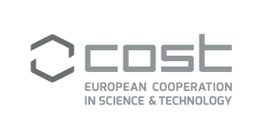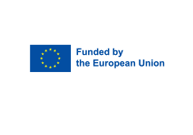Home Institution: University of Montpellier, Montpellier. Host reference: Antoine Claessens, PhD, Chargé de Recherche INSERM, Head of équipe ATIP-Avenir GATAC-Malaria antoineclaessens@umontpellier.fr
Host contac: Dr Lucas Amenga-Etego; Host Institution: West African Centre for Cell Biology of Infectious Pathogens (WACCBIP), Accra , GH
Summary
A P. falciparum infection can result in a wide range of outcomes, from asymptomatic to uncomplicated or severe malaria and death. The vast majority of all P. falciparum infected carriers worldwide are asymptomatic. The discrepancy in infection outcomes suggests a large diversity of parasite virulence
and/or host susceptibility. The host-pathogen interaction is mediated at least partly by the parasite antigenic variation and the host immune response.
To disentangle these two variables, the main objective of the MADBIO is to define the natural progression of P. falciparum infection, based on host and parasite transcriptomes. With the sequencing of unicellular RNA at several stages of an infection, we will identify biomarkers predictive of its outcome and discover the mechanisms that can shift host-pathogen interactions towards virulence or parasite elimination. The long-term goal is to target the most virulent parasites and protect the most vulnerable humans, to help eradicate malaria.
To achieve this, we will draw blood (fingerprick or venous blood) at regular intervals from each participant who has agreed to participate in the study, and for which we have received signed informed consent. Plasma, peripheral blood mononuclear cells (PBMC), and infected red blood cells will be frozen separately. Plasma and PBMCs will be used to characterize the host immune response by flow cytometry and RNA-seq, respectively. The antigenic variation of the parasites, involving the regular change of the type of var gene expressed, will be studied by RNA-seq and qRT-PCR. The longitudinal approach of the MADBIO project will make it possible to decipher the mechanisms of the host-pathogen interaction of P. falciparum in its natural host. Most importantly, the discovery of host and parasitic biomarkers of infection outcome will enable us to identify and protect those most at risk, but also to lead malaria elimination campaigns against long-lasting infections.
For details, see the enclosed file.
COST (European Cooperation in Science and Technology) is a funding agency for research and innovation networks. The COST ACTIONS help connect research initiatives across Europe and enable scientists to grow their ideas by sharing them with their peers. This boosts their research, career and innovation.
One Health drugs against parasitic vector borne diseases in Europe and beyond
OneHealthdrugs
24/10/2022
23/10/2026
27/05/2022
Download file
Maria Paola Costi
Anabela Cordeiro da Silva
Maria Cristina Notarsanto
Maria Esposito and Laura Leonardi


